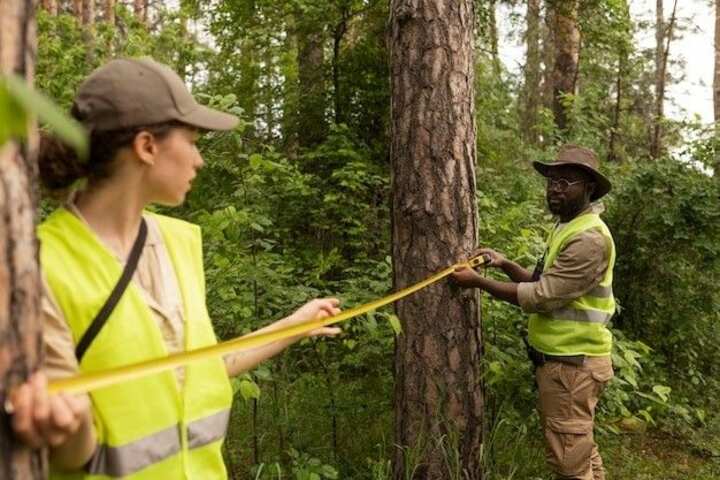
Wildlife Management Services in Kansas City: Protect Your Property Today
As urban development expands across Kansas City, interactions between humans and wildlife become increasingly frequent. This dynamic presents unique challenges and opportunities for property owners in the area. Wildlife management services play a crucial role in safeguarding both human interests and environmental health. This article delves into the nuances of wildlife management services in Kansas City, exploring the current trends, strategies, and solutions available to protect your property today.
Introduction: Wildlife Management in Kansas City
Kansas City is known for its diverse ecosystems, home to various species of wildlife that enrich the local environment. However, the intersection of urban expansion and natural habitats often leads to wildlife encroaching into human environments. Proper wildlife management is essential for maintaining a balanced ecosystem, ensuring the safety of both residents and wildlife, and mitigating property damage and public health risks.Understanding Wildlife Management
Wildlife management is a practice involving the responsible stewardship of wildlife populations, their habitats, and human interactions with them. It entails strategies meant to reduce conflicts between wildlife and humans, conserve biodiversity, and keep ecosystems in balance.Key Challenges in Wildlife Management
- Habitat Fragmentation: As Kansas City continues to grow, natural habitats are disrupted, posing challenges to wildlife.
- Human-Wildlife Conflict: Increased contact between humans and wildlife can lead to property damage, such as crop losses or structural issues, and pose health risks like zoonotic diseases.
Importance of Wildlife Management Services
Engaging professional wildlife management services is crucial for effectively dealing with the challenges posed by wildlife in Kansas City. These services offer expertise in assessing wildlife-related issues, implementing humane solutions, and ensuring compliance with local regulations.Benefits of Wildlife Management Services
- Prevention and Mitigation: Identify potential wildlife threats and implement preventive measures to mitigate risks.
- Expert Guidance: Benefit from knowledgeable experts who understand local wildlife habits and behaviors.
- Regulatory Compliance: Ensure that management practices align with state and federal regulations, safeguarding legal interests.
Common Wildlife Concerns in Kansas City
Residents of Kansas City may encounter various wildlife species, each posing unique challenges. Understanding these species' behaviors and impacts is essential for effective management.Species Commonly Managed
| Species | Potential Concerns |
|---|---|
| Raccoons | Can damage roofs and attics, spread diseases. |
| Deer | Cause vehicle collisions, damage landscaping. |
| Bats | Can carry rabies, cause structural damage. |
| Coyotes | Pose threats to pets, can spread diseases. |
Strategies for Effective Wildlife Management
Effective wildlife management entails a blend of proactive and reactive measures designed to address immediate concerns and prevent future issues.Proactive Measures
- Habitat Modification: Ensure that property landscapes are less inviting to unwanted wildlife. For example, removing potential food sources or shelter can deter wildlife from settling in human-populated areas.
- Exclusion Techniques: Use barriers such as fencing or netting to prevent wildlife entry into vulnerable areas like gardens or attics.
Reactive Solutions
- Trapping and Relocation: Safely capture and relocate wildlife to more suitable habitats, following legal and ethical guidelines.
- Behavioral Deterrents: Employ methods such as noise devices or visual deterrents to reduce wildlife presence.
Regulations and Compliance in Kansas City
Wildlife management in Kansas City requires compliance with a range of local, state, and federal regulations designed to protect both wildlife and human interests.Understanding Legal Framework
Familiarizing oneself with relevant laws, such as those governing protected species, hunting regulations, and chemical use, is crucial. Partnering with professional wildlife management services ensures adherence to all necessary regulations and avoids legal pitfalls.Wildlife Management Service Providers in Kansas City
Partnering with a reputable wildlife management service provider is crucial for effectively managing wildlife on your property. These professionals offer comprehensive solutions tailored to the specific needs of Kansas City residents.Selecting a Provider
- Experience and Expertise: Look for providers with proven experience in managing local wildlife concerns.
- Customer Reviews: Examine client testimonials to gauge service quality and satisfaction.
- Service Offerings: Evaluate the range of services offered, from consultation to comprehensive management plans.
Case Study: Success Stories in Kansas City
To illustrate the effectiveness of professional wildlife management services, consider a property in the Kansas City area that faced severe raccoon infestations. Through expert assessment and tailored exclusion strategies, the property owner successfully mitigated the risk and transformed it into a wildlife-friendly yet human-safe environment.Key Lessons
- The importance of early detection and proactive measures.
- The value of tailoring solutions to specific property needs.
Future Trends in Wildlife Management
The field of wildlife management continues to evolve, driven by technological advancements and changing environmental conditions. Kansas City property owners can expect the following trends to influence future management practices:- Integration of Technology: Use of digital tools, such as wildlife monitoring apps, to track animal movements and trends.
- Increased Public Awareness: Growing recognition of the importance of living harmoniously with wildlife among communities.